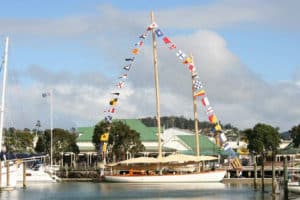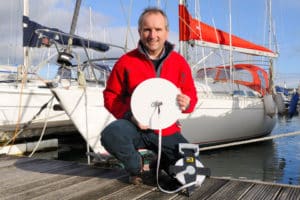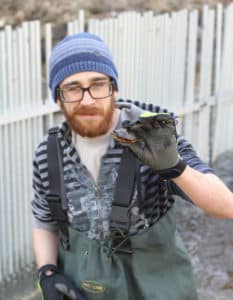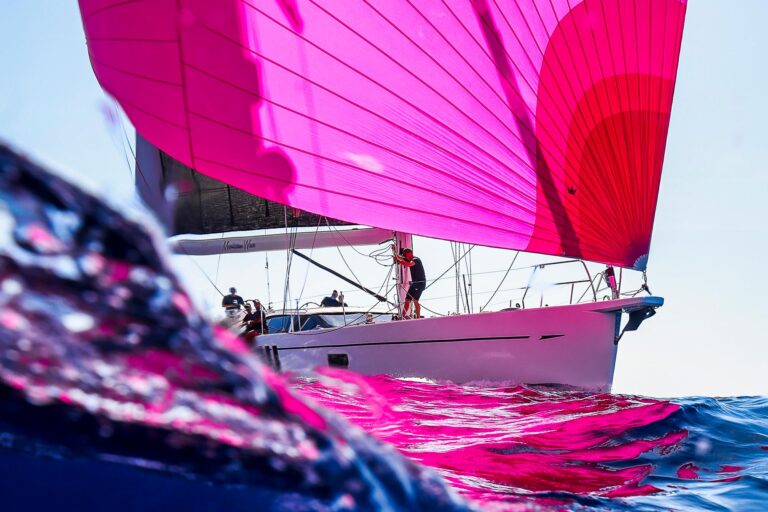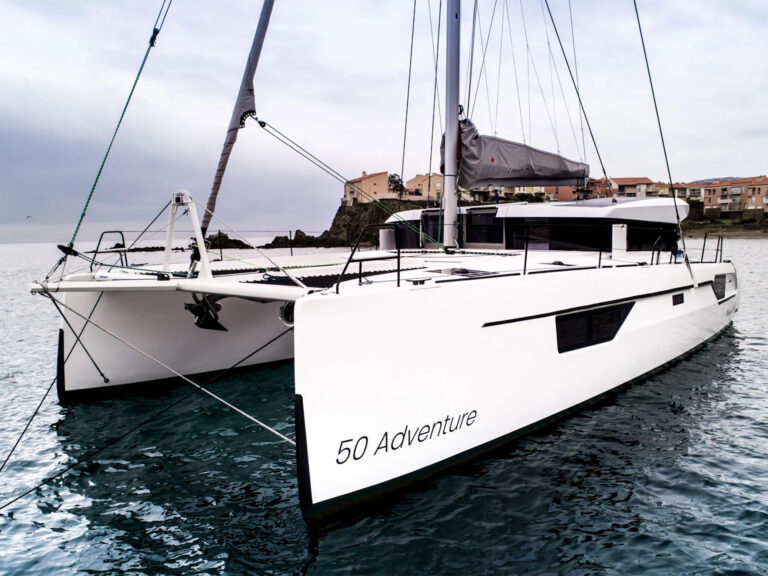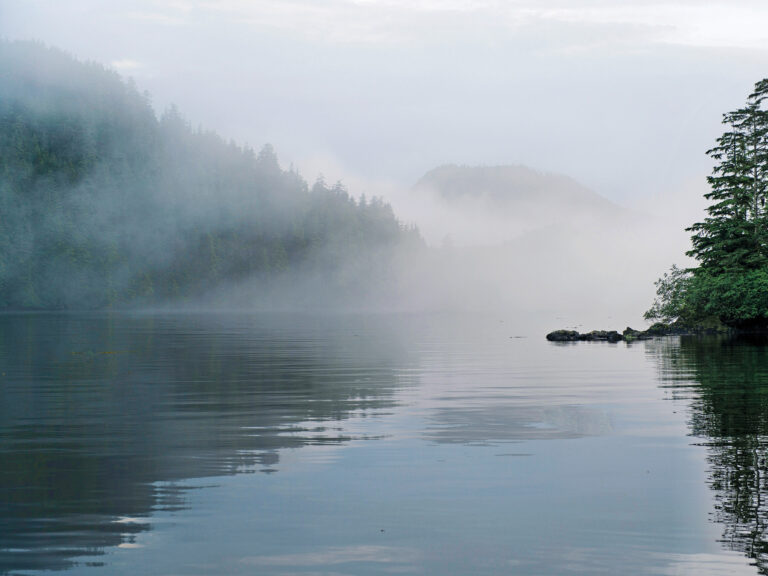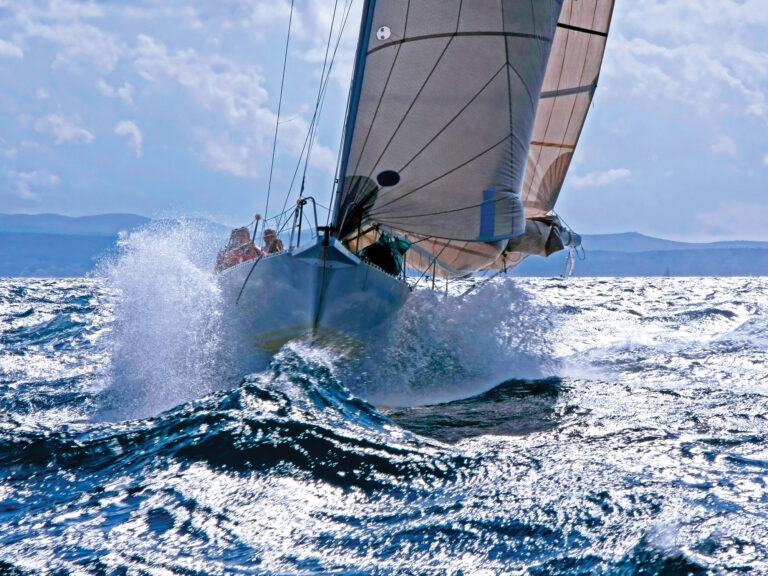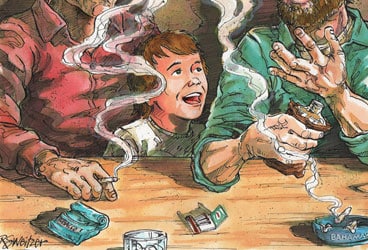
Goodlander Muses
Happy, sane, well-adjusted people pick their professions. Artists, on the other hand, are chosen by theirs. I was a young lad walking beside my giant father, and taking three steps for his every one, when my profession tapped me. I remember it clearly. I was holding on to his massive hand with my tiny one; holding on to just his thumb, actually, which felt as big as a tree trunk in my tiny palm. We were standing in front of a small grocery shop just outside the shipyard where our family schooner was hauled. The shopkeeper was talking about some hero who’d just climbed a tall mountain. “That must be the hardest thing in the world to do,” said the merchant.
“No,” said my father, who was at the time struggling with an article he was writing for Yachting. “Writing a simple declarative sentence is the hardest thing in the world to do.”
From that moment on, there was never any doubt in my mind what I wanted to do: sail the ocean blue. With a loving wife on my lap. And a tiller in one hand. And a pen in the other.
My sisters, Carole Borges and Gale Whitbeck, taught me to read aboard the schooner Elizabeth. “It says ‘Oink,’” Gale would recite from the dog-eared Dick-and-Jane Calvert textbook. Carole would chime from memory, “Is it a cow?”
“No, no!” I’d cry in delight, rapidly swiveling my little-boy hips with the pure physical pleasure of it. “A cow goes ‘Moooo!’”
“Is it a rooster?” asked Gale.
“No, no!” I’d shout with glee. “That’s a cock-a-doodle-do! It’s a pig, silly sisters. A big, fat pig!”
“Shhh!” they’d shush me. “Mother’s writing in the forecabin!”
And she was always writing each morning; editing, revising, crossing out, throwing away, humming with glee, organizing her photographs, struggling with captions, swearing under her breath, and occasionally just collapsing on her typewriter and crying forlornly. Mother’s book, actually a huge, twine-tied manuscript of our 1950s Mississippi trip aboard Elizabeth, was like a sixth crewmember.
I knew early that it took tears to birth a story.
Pensacola was a U.S. Navy town, filled with eager sailors. My job was to be my sisters’ chaperone. But I made it quickly apparent to the sailors that I could be bribed—with an expensive fountain pen. I soon had dozens of them; Parkers, Crosses, and Watermans. I carried them in rubber-banded bundles inside a ditty bag. And I watched my wonderfully wicked sisters and their “friends” like a silent, unblinking camera.
When you call a writer a voyeur, it’s a compliment.
I must’ve been around 7 years old when we lived in Carrabelle, a small fishing village on the Florida Panhandle. I didn’t know it, but we were dead broke. Because of this, these were the best years of my youth. My father, our mate Joey, and I spent all our time together hunting and gathering along the shore. We netted mullet, trapped crabs, and caught fish all day, then gigged flounders (while wading with a bright-white hissing lantern) all night.
I’d play with my pens, my special linen stationery, and my exotic inks from India on the foredeck of Elizabeth, just like girls would play with dolls and other boys would play with guns. (I didn’t realize it then, but my pens were my guns.)
Poverty is tribal. The rich can afford isolation. The poor have to band together to survive. Each evening, the reeking, smiling, toothless, shiftless commercial fishermen would gather around our galley table, and the sea stories would begin. Each would take his turn. I heard tales of weathering 60-foot waves off Campeche, of boats rolled while shooting the bar in Belize, of innocents tossed into a Cuban jail just for having some fun.
They had fish and we needed food, so my mother was only too happy to cook; they were just as happy to sit. Carole would chop the onions for the salad. Gale would try to rinse the fish stink off the hold ice that we’d use for our weak iced tea.
Later, the ladies would retire forward. I got to stay up if I didn’t make a sound. Sacks of Bugler and Bull Durham would come out, and the men would roll their smokes. A pint of whiskey in a paper bag would magically appear and begin to circumnavigate the table. Each man would take his pull directly from the bottle, then smack his lips loudly in appreciation. The stories would begin anew: of whores, hurricanes, and the utter capriciousness of death. And of how ashore, the bastards with the briefcases would rob you faster than you could say, “Where’s my change?”
The cabin would get so quiet. The men were like gunslingers, shooting with their sea yarns for the conversational spotlight. At this level of society, you don’t have much to be proud of; a reputation for a silver tongue puts food on your plate and whiskey on your tongue.
“Did I ever tell you about the time we brought Cap’n Mackey back on ice aboard the Lucky Strike?” Barefoot Benny would ask. We’d heard it a dozen times, but were just as eager to hear it again, so we said nothing.
“Well, the Lucky Strike was anything but,” Benny would say, and we’d all lean into to him to catch the full flavor of his velvet words. “She had more leaks than a sieve, and the only thing keeping her together were the roaches holding hands! Yes, sirree! All the crew of that accursed boat could afford to wear was a frown. That’s right! Even Mackey himself couldn’t afford to pay attention. Which is why they hit Two Fathom rock off Hard Chance. It was just after midnight, peel’n the green, and the barometer had already dropped down into the bilge.”
I marveled at how Barefoot Benny worked the crowd. He could slow or speed them up; he could make them laugh or cry at will. I was in awe. I wanted to tell stories like that so bad I could cry.
It was around this time that I discovered a man who is, in my humble opinion, one of the most important literary stars in America, a true shaper of our culture: Edward Stratemeyer, the mastermind behind the production of the Hardy Boys, the Rover Boys, the Nancy Drew, and the Tom Swift series of books. I devoured all of these. Then one day, a horrible thing happened. It was like I was listening to a symphony and some clumsy ox bumped the record player, and the needle scratched and skipped.
I went to school for the first time at the age of 10, a copy of Henry Miller’s Tropic of Cancer (with the dirty parts underlined in crayon) in the back of my sailing shorts. The first few hours of my educational career were spent listening to my father ferociously argue with the principal of the Mary White grammar school in St. Pete. We were between a rock and a hard place; a truant officer had forced me into school, but the school wouldn’t accept me because we didn’t pay taxes or have a car registered in the state of Florida. So my all-important first impression was of being forced into doing something I didn’t want to do—in a place that didn’t want to have me do it.
In the ensuing five years of the formal education I was forced to endure ashore, I fell in love with two very important people: Mark Twain and John Steinbeck. I loved Mark Twain from the first sentence. He, too, was a waterman outlaw interested in storytelling, boats, adventure, and Becky Thatcher. Me, too! And John Steinbeck wrote about my peeps, the very same wonderful, interesting, endearing misfits who passed out each evening in Elizabeth‘s cockpit!
I carried a notebook and three pens at all times. Everything that happened to me, I wrote down. Even as I was beaten into unconsciousness on the mean streets of Chicago, I carefully noted the words of my tormentors: “Don’t kick that dude—stomp on that dude!” was the last bit of pithy dialogue I remember before waking up in the emergency room.
At 15, I purchased Corina. At 16, my wife, Carolyn, came aboard to sew up some curtains, and she’s been sewing happiness into my life ever since. We sailed away at 18, in 1970, and we’ve never looked back.
I was still a teenager when I discovered Larry King, a Jewish comedian who wrote a delightful series of humor books that tried to be funny in every sentence. He got paid in laughs. Interesting. Plus, he could say things with humor that he wouldn’t be allowed to otherwise. I started reading Dick Bradley in Motor Boating & Sailing. He was a riot. And he could laugh at himself as much as at others. Cap’n Percy in National Fisherman often cracked me up, too. There was Joshua Slocum. My favorite cruising book of all time is Cruise of the Diablesse by Frederick A. Fenger. I enjoyed Sir Francis Chichester, Harry Pidgeon, Bill Robinson, Voss, the Pardeys, Robin Knox-Johnston, and Bernard Moitessier.
Though school had almost convinced me that I was an idiot, a wonderful, magical thing happened to redirect me to The Literary Path. After a few years of cruising in the Caribbean, we leisurely drove up the U.S. East Coast, and a scene was repeated almost exactly three times: An old friend would be delighted to see us; he’d reach under his chair and grab a shoebox (pillow case, gym bag) full of my rubber-banded and indexed letters (which he’d obviously read many times); he’d call his best friend over; his best friend (who’d never met me) would love me, too. Perhaps some of my sentences weren’t so bad after all?
Thousands of sea miles ensued, and Carolyn and I were enthralled by the writings of the young Harry Crews, early Stephen King, and Charles Bukowski. And Hunter S. Thompson, Elmore Leonard, and James Lee Burke.
Eventually, I began writing, sparingly at first. Then soon I was writing four hours a day, five days a week, when not at sea. I began to send out my articles. “Homing pigeons” my wife called them, because they always came straight back home. Then one day, a thin envelope arrived, too thin to contain the original manuscript. I stared at it for a long, long while. Then I made a jerky move to open it, and stopped. I stared at it some more, then finally opened it. Forty dollars. I snapped it closed quick, as if the text might escape. I blinked. I took a deep breath. I shivered. I made sure no one was watching. Then all those years of frustration came gushing out of me, like a broken dam. I cried.
Cap’n Fatty and Carolyn Goodlander are dividing time between Wild Card_ in Turkey and their new granddaughter, Sokú, in Amsterdam. Their new book,_ How to Buy, Outfit, and Sail a Small Vessel Around the World_, will be published in early 2011._

